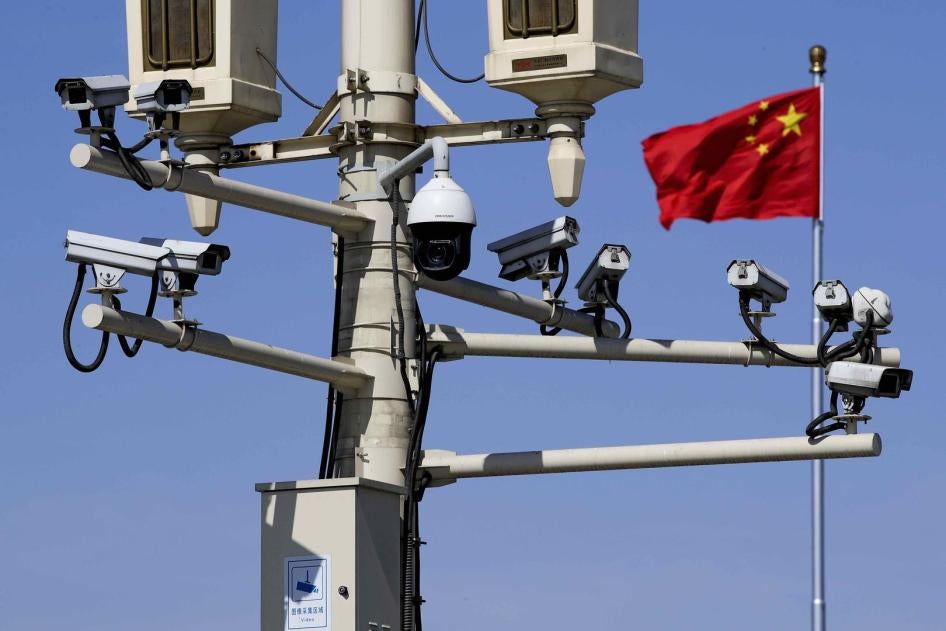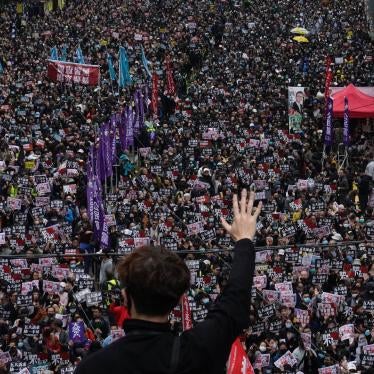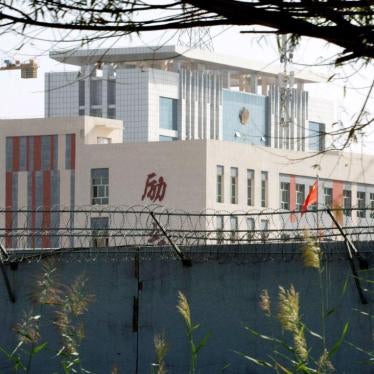What will be the top China story in 2020? The Chinese government gives human rights activists plenty of topics to choose from, like the mass arbitrary detention of Turkic Muslims in Xinjiang, the ever-expanding surveillance state, efforts to undermine key international human rights mechanisms, and the ongoing protests in Hong Kong. But let’s bet that the efforts to push back against Chinese government repression grab the headlines. Inside China, despite pervasive controls of online speech, people recently lambasted the tech giant Huawei for the arrest and detention of a former employee, after he pushed the company for severance pay. Netizens reacted cynically to an open letter from Huawei executive Meng Wanzhou, in which she lamented the realities of her detention—in her Vancouver mansion—contrasting her treatment with that of the employee.
For the first time, officials leaked high-level government documents detailing repression in Xinjiang. While confirming abusive policies, the documents also showed some local officials resisted arbitrarily detaining Muslims.
Chinese authorities’ heavy-handed efforts to restrict speech internationally, concerns about abuses against foreigners domestically, and increasingly aggressive diplomacy are prompting concern from new constituencies globally. Sports fans tasted Beijing’s ire, and its consequences, after Houston Rockets General Manager Daryl Morey tweeted sympathetically about the Hong Kong protests. And after Arsenal football star Mesut Ozil decried China’s treatment of Muslims, fans across China burned the U.K. team’s jersey. It’s unclear what longer-term effects these reactions to peaceful speech will have, but as the 2022 Beijing Olympics and other major sports events approach, athletes and fans may view the Chinese government in a far less positive light than they did during the 2008 Games.
Particularly in contrast to Canada’s treatment of Meng, China’s detention of the Canadians Michael Kovrig and Michael Spavor has considerably damaged Beijing’s reputation in that country. Meanwhile, Australians are more aware of China’s lack of fair trial amidst China’s detention of an Australian, Yang Hengjun; Americans by the ongoing exit bans against U.S. citizens who haven’t been accused of crimes; and Swedes by the detention of the publisher Gui Minhai.
Some Chinese diplomats’ increasingly undiplomatic conduct has been an unpleasant surprise. Beijing has a new propaganda strategy: letting diplomats vent publicly, sometimes on platforms blocked in China. The Chinese diplomat Zhao Lijian lodged racist broadsides at the U.S. on Twitter, while China’s ambassador to Sweden, Gui Congyou, threatened governments which publicly discuss human rights issues in China. Efforts by pro-Beijing voices to shut down pro-Hong Kong democracy protests on campuses in Australia, Canada, the U.K., and U.S. have also changed perceptions about China.
The result? Growing international skepticism about President Xi Jinping’s intentions in the world. Fewer governments are willing to support Beijing’s whitewash of abuses in Xinjiang. More worry about the debt risks of Belt and Road Initiative investments. And people who previously had no particularly strong opinions about the country are taken aback to find Chinese government attacks on free expression going global.
We’ll see what 2020 brings.









